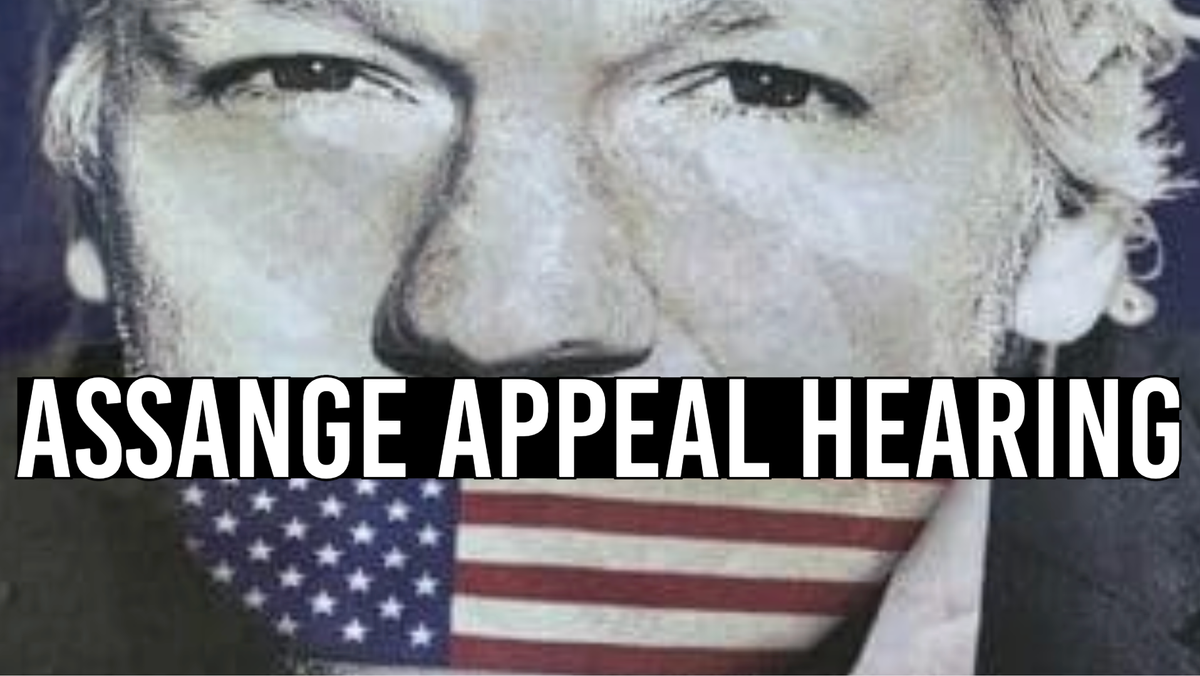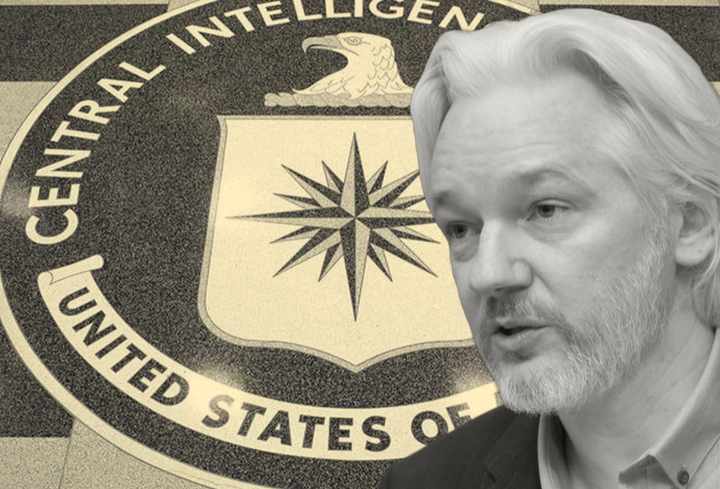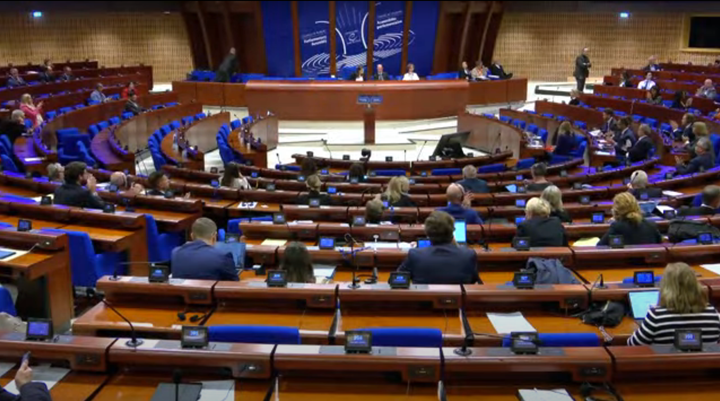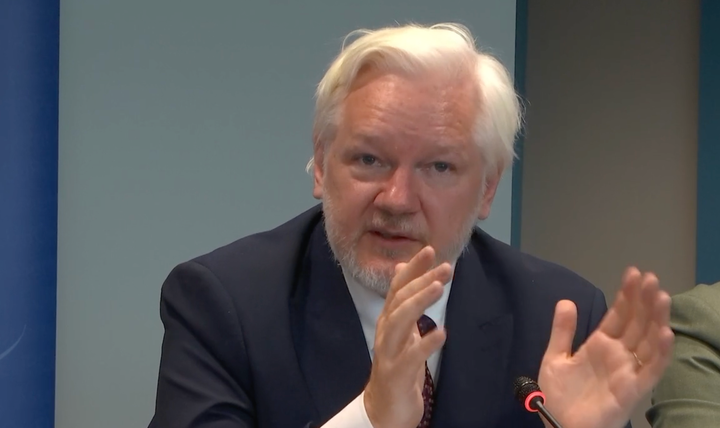UK Appeal Hearing: Unprecedented Espionage Act Charges Against Assange
Assange's legal team argues extradition should be barred because the Espionage Act has never been used to prosecute a journalist or publisher

Editor’s Note: The following was published as part of a “Countdown To Day X” series highlighting key aspects of WikiLeaks founder Julian Assange’s request to appeal his extradition to the United States.
Under Article 7 of the European Convention on Human Rights, extradition is not supposed to be extended to anyone who the requesting state is seeking to find guilty of a criminal offense that was not a “criminal offense under national or international law at the time when it was committed.”
The Espionage Act charges against WikiLeaks founder Julian Assange represent the first time that a publisher has been charged by the United States government with violating the law.
In the past two decades, the 1917 law was typically applied to U.S. government employees or contractors, who signed a non-disclosure agreement to obtain a security clearance that had granted them access to classified information. They were punished for retaining documents or disclosing files to the press.
The U.S. Justice Department (DOJ) has not made it a practice to use the Espionage Act to punish non-Americans in foreign countries, who publish U.S. government documents. That makes sense because the U.S. law was passed during World War I to criminalize Americans for engaging in acts considered disloyal to the war effort.
Therefore, Assange’s legal team maintains that the 1917 law has been extended in a novel and unforeseeable manner that should require the British High Court of Justice to oppose extradition.
Courts are advised to assess whether someone like Assange “could reasonably have foreseen at the material time, if necessary with the assistance of a lawyer, that he risked being charged with and convicted of the crime in question.”
In my book, “Guilty of Journalism: The Political Case Against Julian Assange,” I spend an entire chapter on what Assange should have “foreseen” in 2010 and 2011 when he published military incident reports, diplomatic cables, detainee assessment briefs, and other files from the U.S. government that were provided to WikiLeaks by U.S. Army whistleblower Chelsea Manning.
The documents that Manning was charged with releasing were largely the same documents that Assange has been targeted for publishing to WikiLeaks.
One of the documents that Manning shared with WikiLeaks was a March 2008 report from the Army Counterintelligence Center (ACIC). It was titled, “WikiLeaks.org—An Online Reference to Foreign Intelligence Services, Insurgents, or Terrorist Groups?” It explored the potential threat WikiLeaks posed to the U.S. Army as a “publicly accessible internet website.”
Much of the report contained theoretical statements with little to back up the assertion from one U.S. military prosecutor that it “alerted readers that WikiLeaks was a source of intelligence for adversaries.” Instead, the report referred to Assange as a “foreign staff writer,” who “wrote several news articles, coauthored other articles, and developed an interactive database” for accessing documents on military equipment in Iraq and Afghanistan.
ACIC also concluded, “[WikiLeaks.org's] attempts to verify the information were prudent and show journalist responsibility to the newsworthiness or fair use of the classified document[s] if they are investigated or challenged in court.”
The report stated that “diverse views exist among private persons, legal experts, advocates for open government accountability, law enforcement, and government officials in the United States and other countries on the stated goals of WikiLeaks.org.”
In other words, there was no widely shared belief in the U.S. government that WikiLeaks was some kind of a "criminal enterprise" led by Assange.
During Manning’s trial, Mark Mander, a computer crimes investigator for the Army, said WikiLeaks was “an uncensorable Wikipedia for untraceable mass document leaking and analysis. Sheila Glenn, who worked or ACIC, was even more concise: “WikiLeaks is an organization that exposes illegal activity.”
Manning’s defense attorney David Coombs contended that “anyone looking at WikiLeaks prior to the charged releases” would have believed that WikiLeaks was a “legitimate news organization."
Beyond the evidence and testimony at Manning’s trial, several unnamed Justice Department officials told the Washington Post in November 2013 that prosecutors had run into a problem—if they prosecuted Assange, then they would have to prosecute the New York Times.
“The problem the department has always had in investigating Julian Assange is there is no way to prosecute him for publishing information without the same theory being applied to journalists,” former Justice Department spokesperson Matthew Miller declared. “And if you are not going to prosecute journalists for publishing classified information, which the department is not, then there is no way to prosecute Assange.”
U.S. government officials were abstractly focused on the potential threat that leak submission sites might pose. They viewed the WikiLeaks website as a central location that designated enemies could visit to read previously classified information. Yet officials had not accused WikiLeaks of being an anti-U.S. organization nor had CIA director Mike Pompeo and the U.S. Congress ominously labeled WikiLeaks a “non-state hostile intelligence service.”
The appeals court could grant a full appeal hearing and reverse the extradition decision simply because the Espionage Act should not apply to Assange.
*Note: A big thank you to those who donated to support the newsletter's Assange coverage yesterday.




Comments ()